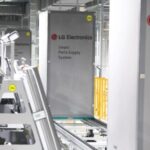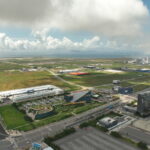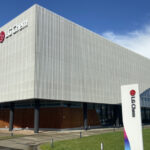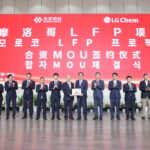ASIA ELECTRONICS INDUSTRYYOUR WINDOW TO SMART MANUFACTURING
LG Chem Breaks Ground on New Cathode Plant in Tennessee
LG Chem has commenced construction of a cathode plant in the U.S., intending to establish a production hub for the global battery material market. The facility, located in Montgomery County, Clarksville, Tennessee, will locally produce cathode materials optimized for North American electric vehicles (EVs). Also, it will collaborate with key partners from development to supply chain.
On December 20, the company held the groundbreaking ceremony for its cathode plant in Tennessee. The event was attended by guests including Tennessee Governor Bill Lee, Commissioner Stuart McWhorter, Senator Marsha Blackburn, Korean Ambassador to the United States Cho Hyun-dong, Clarksville City Mayor Joe Pitts and Montgomery County Mayor Wes Golden. Meanwhile, key attendees from LG Chem were CEO Shin Hak-cheol, President of Advanced Materials Company Nam Chul and Head of Battery Materials Business Unit Lee Hyang-mok.
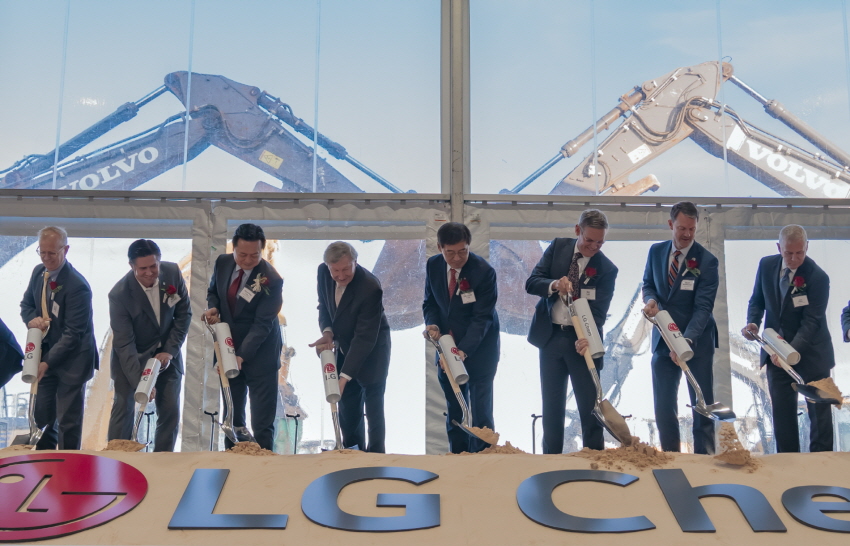
“With the Tennessee cathode material plant as the center, LG Chem will undoubtedly leap to become the top cathode material supplier in North America,” CEO Shin Hak-cheol commented. “LG Chem will execute the vision to become the world’s leading comprehensive battery material company. It will be establishing a stable supply chain resilient to any environment.”
“Tennessee’s pro-business environment and skilled workforce provide global companies with the tools they need to succeed,” said Tennessee Governor Bill Lee. “I congratulate LG Chem on today’s significant milestone and thank the company for its investment in Tennessee.”
“Tennessee strives to be the premier destination for the next generation of innovation and high-quality jobs. Thus, because of companies like LG Chem, we are one step closer to that goal,” said Stuart C. McWhorter, Commissioner of the Tennessee Department of Economic and Community Development. “I look forward to seeing this impressive facility in the years ahead.”
Mainly, LG Chem will invest around KRW 2 trillion (USD 1.6 billion) in the first phase to build a cathode plant. Specifically, it can churn out 60,000 tons annually on a 1.7 million square meter site in Clarksville, Tennessee. Also, the plant is expected to be the largest cathode material facility in the United States. It will be capable of producing cathode materials for approximately 600,000 high-performance pure electric vehicles with a range of 500km annually.
Starting from 2026, the Tennessee cathode plant will mass produce NCMA (nickel, cobalt, manganese, aluminum) cathode materials. LG Chem plans to diversify its product portfolio through future-generation cathode material products. Also, it plans to expand production capacity in response to increasing demand. LG Chem previously signed a comprehensive agreement for the long-term supply of 950,000 tons of cathode materials with General Motors last year. Also, it signed a supply contract worth KRW 2.9 trillion (USD 2.5 billion) with Toyota for North America last October.
Tennessee offers excellent geographical accessibility for customer deliveries and raw material imports. For its part, LG Chem plans to use the Tennessee facility as a base for communication with customers. Additionally, it will produce customized cathode materials optimized for North American electric vehicles from the development stage.
Through the plant, LG Chem aims to actively respond to the Inflation Reduction Act (IRA) of the Biden Administration. Accordingly, it will help customers meet EV tax credits criteria. Also, the Tennessee plant will secure a reliable supply chain for minerals and precursors from nations with U.S. free trade agreements. For instance, it will utilize precursors from Ulsan by Korea Precursor Company, a JV of LG Chem and Korea Zinc.
Moreover, LG Chem will enhance the manufacturing competitiveness of the Tennessee plant. It will advance its engineering technology of the calcination process. Thus, it will secure the highest-level annual production capacity of 10,000 tons per line. LG Chem will also apply smart factory technology to the Tennessee plant. Specifically, it will automate the entire production process and establish a quality analysis and control system.
In addition, LG Chem is discussing collaboration with U.S. battery recycling companies regarding material supply cooperation. It plans to operate the plant with 100% renewable energy in collaboration with local power supply companies.

